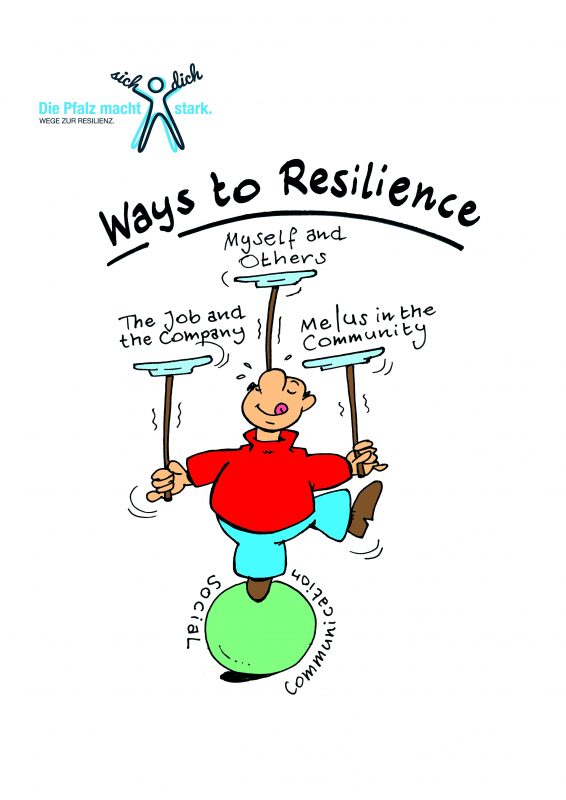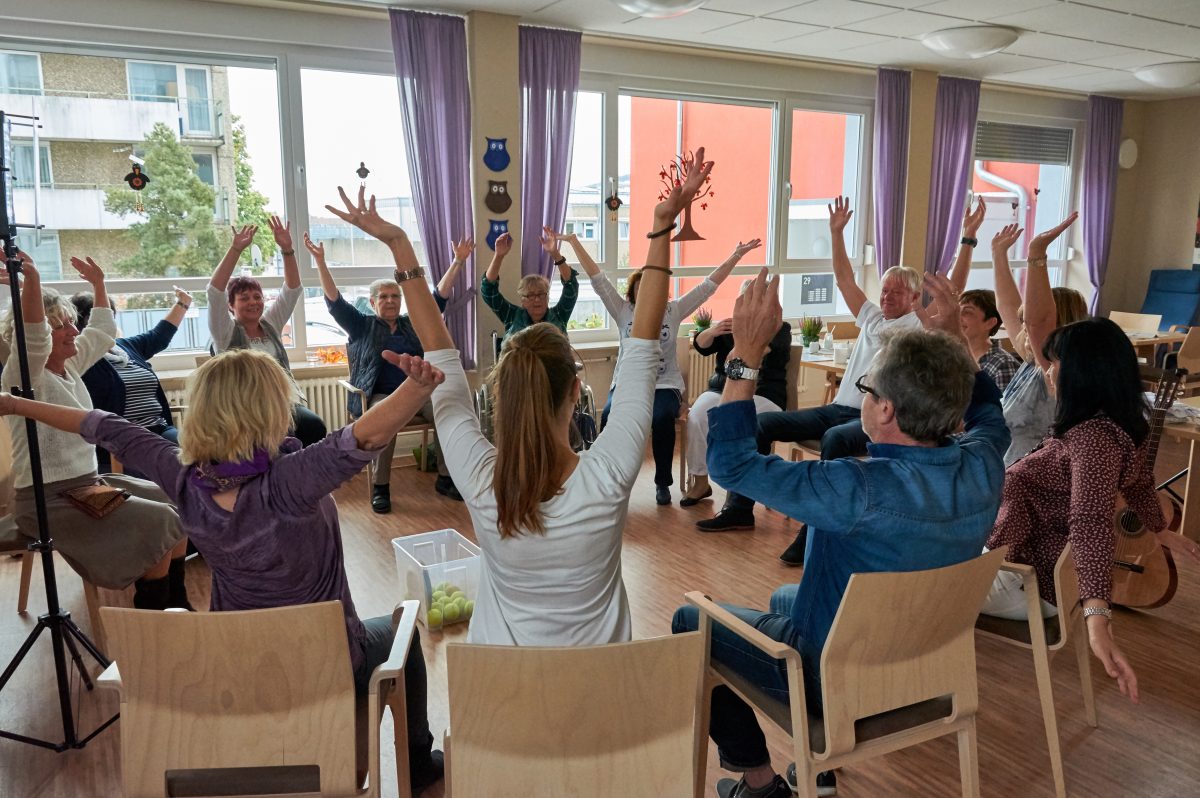The Palatinate makes itself/you strong – ways to resilience’ initiative was founded by Pfalzklinikum for psychiatry and neurology in the Palatinate, in Southwest Germany. Together with national and international project partners such as, universities, communication experts and think tanks it aims to develop a resilient palatinate region until 2025. People shall be enabled to help one another to remain healthy and to cope well with personal challenges and crises. At the moment, the initiative is involved in different projects that illustrate their 3 work fields ‘Myself and Others’, ‘The Job and the Company’, and ‘Me/Us in the Community’.
Healthcare centre in Donnersberg – a project by “Me/Us in the Community
A completely new concept in healthcare service is the healthcare centre Donnersberg, which will be developed in the Palatinate town Rockenhausen and its neighbouring cities in the administrative district Donnersberg. On the one hand, Pfalzklinikum for psychiatry and neurology, as well as Westpfalz-Klinikum for somatic medicine are pooling their competences in terms of mental and physical health. On the other hand, both stationary and ambulatory, as well as caring and preventive services will be narrowly interlinked.
Both partners aim to maintain people’s health and quality of life in that region as long as possible – especially regarding the ageing population and the shortage of doctors and other skilled professionals in the care sector. The healthcare centre shall merge the competences of hospitals, resident doctors, and aftercare institutions such as stationary living or welfare centres. Not only patients can benefit from the close exchange and the spatial proximity of the institutions. The concept also offers an incentive for young doctors: In this way, they can establish themselves in the rural area without being forced to become self-employed. With this idea, Pfalzklinikum and Westpfalz-Klinikum are facing important challenges in the country: rural exodus, lack of doctors and ageing. In addition, they plan to involve different stakeholders of the population at an early state of the planning. The focus lies here on the positive impact of participation and the development of health literacy.
Fostering of emotion regulation of school children – a project by ‘Me and the others’
How does it feel to be angry or happy? How do I recognise if someone laughs about me or with me? How do I show other people that I like them? Why do I have emotions and why is it important to allow them? Developing basic emotional competences is as important for children as acquainting rules of social conduct. It is an essential precondition for resilience. The initiative is currently working on the expansion of an emotional training which has been implemented in more than 50 classes in Palatinate schools. It was developed and tested by Prof. Tina In-Albon and psychology students of the University of Koblenz-Landau. The training transfers knowledge about emotions to the children and develops their competences in being empathetic, controlling their impulses, coping with conflicts and communicating violent freely. The elder children and teenagers from class’s 8 to 9 are also trained in coping with depression and building cognitive strategies and resources.
Tool box for sustainable companies – a project by ‘The Job and the Company’
Whether it is the implementation of new technologies, a strategic realignment, ageing staff or an internal shift of culture – change often bares both potential and risks for companies. But there is often a lack of practicable implementation concepts in order to deal with such situations successfully without burdening the people in a company. Therefore it is necessary to develop a new kind of implementation process that strengthens companies and their employees against crises. The solution approach is to balance individual and organisational resilience.
In their work field – ‘The Job and the Company’ – the initiative ‘The Palatinate makes itself/you strong’ is currently working with small and medium sized enterprises in order to develop measurements that make them fit for challenges and resistant against crises. For example, before change projects are decided, the management and the employee organisation check which alternative implementations bare the least burden for the staff. In these processes, the focus is laid on preserving mental health instead of discussing diseases.
By Romina Männl, Pfalzklinikum
Paul Bomke
CEO
Pfalzklinikum










